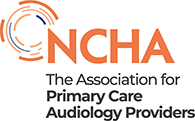05 October 2016
Northern Ireland must act now to avoid NHS audiology failing
Capacity challenges in hospitals make it impossible for the existing NHS workforce to meet the hearing needs of Northern Ireland, reports the British Academy of Audiology. NCHA Director of Policy Harjit Sandhu sets out why community provision is now essential.
The challenges facing Health Service (HS) hearing services in Northern Ireland have been in the spotlight in recent years. In November 2015 plans to run pilots to trial community-based hearing care were announced and welcomed by leading patient group Action on Hearing Loss (AoHL), but recently BBC NI Health Correspondent Marie-Louise Connolly reported that these plans had been put on hold. Here at the NCHA our analysis suggested that pausing the pilot would result in systems failure, simply because existing NHS staff in Northern Ireland could not meet current, let alone new, demand for hearing services.
Our concerns have now been validated by a British Academy of Audiology (BAA) report on Northern Ireland, which has been co-produced with Heads of Service in the country. The report accepts that ‘With the lack of substantive workforce and succession planning options services are already struggling to meet current demands, let alone to have the capacity to build sustainable workforce for any additional future demands. An urgent review is required of both the workforce and training needs for NI Audiology services’. This reiterates earlier warnings by AoHL that “people with hearing loss in Northern Ireland are getting a worse service than anywhere else in the UK, due to an underinvestment in audiology services, in spite of growing demand.” .
The root cause of inequalities in hearing care access and outcomes
The BAA and AoHL are right to highlight the importance of addressing the root cause of challenges, and of the need to avoid repeating past workarounds. All the major patient groups, providers and membership bodies in Northern Ireland are clear that a lack of investment in adult hearing services and a shortfall in HS capacity (staff and estate) mean the current system and status quo are unsustainable.
So, what are the solutions to this crisis in audiology?
Organisations are right to highlight local challenges and call for more investment, but they are also right about avoiding past mistakes. After many years of failed initiatives in hospitals – such as waiting time initiatives - it should now be clear that to ensure there is a sustainable, high quality and accessible hearing service the HS has to deliver more hearing care in the community.
Today, the HS in Northern Ireland is trying to use 65 qualified audiologists to provide HS hearing care across 5 Health Trusts, and despite this capacity crisis, the HS has not yet utilised 32% of the qualified workforce that are based across 42 community-based locations in Northern Ireland.
Utilising this capacity would have an immediate and positive impact on hearing care, and it is possible to achieve this without the capital investment that some have called for. For example, half of NHS commissioning areas in England now utilise over 500 community-based hearing care locations that were previously only accessible to people that had the ability to pay, these services are funded by the NHS and free at the point of service to users. The result; reduced inequalities and improved access across England.
The NHS regulator in England carried out an independent review of the rollout of community-based hearing services, and found that in areas that introduced community-based services under the Any Qualified Provider (AQP) initiative the NHS had reduced waiting times and improved standards, transparency and value for money. For example, the regulator reported in regions with AQP prices were 20% to 25% less than the hospital-based tariff system, making it possible to see more patients with any given budget.
Working together in Northern Ireland
Given that 9 out of 10 people with a hearing loss do not need a medical assessment and can be managed by a qualified audiologist, it is clear that more can be done to redesign services around the needs of the population, even with a restricted budget.
This can also be achieved very quickly, by cross sector collaboration with the Department of Health in Northern Ireland. We would urge patients and patient groups, membership organisations, providers and the Department of Health to come together to ensure we address acute problems within the hearing service. The NCHA agrees with the BAA that there is an urgent need to review existing audiology services in Northern Ireland and we are ready to help in any way we can. We can only improve access, services and results for the 285,000 people with hearing loss by working together as a sector and with the health service.
References
British Academy of Audiology 2016. Northern Ireland Audiology Services Briefing Paper. http://baaudiology.org/indexphpnews/news-home/northern-ireland-audiology-services-briefing-paper-september-2016/ Accessed 5 October 2016
Action on Hearing Loss, 2015. Audiology Provision in Northern Ireland. https://actiononhearingloss.org.uk/supporting-you/policy-research-and-influencing/research/under-pressure/northern-ireland.aspx Accessed 5 October 2016
NCHA, 2015. Community dataset. http://the-ncha.com/data/ Accessed 5 October 2016
Monitor, 2015. Research and Analysis, NHS adult hearing services in England, exploring how choice is working for patients. https://gov.uk/government/publications/nhs-adult-hearing-services-in-england-exploring-how-choice-is-working-for-patients Accessed 5 October 2016

Press enquiries
Media enquiries should be directed to [email protected] or call 020 7298 5110.
We are happy to put you in touch with our expert policy advisers who can comment on a variety of issues.
You can also follow us on Twitter and LinkedIn.

 Your hearing and aural health
Your hearing and aural health  Commissioners and Policymakers
Commissioners and Policymakers  Member support and guidance
Member support and guidance News and views
News and views
 Hearing map
Hearing map
